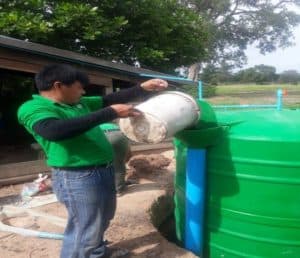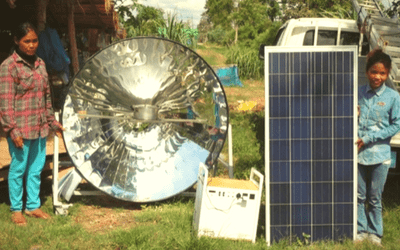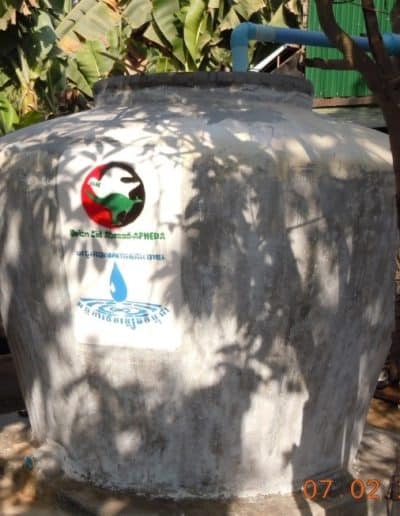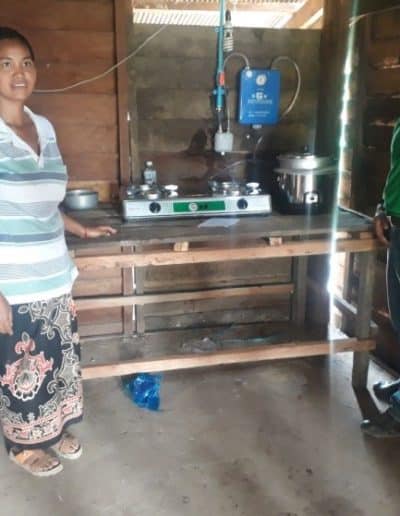Small scale farmers in Cambodia on the front lines of dangerous global warming
 Cambodia comes up in many studies as being one of the countries most impacted by dangerous global warming. In Cambodia, Union Aid Abroad – APHEDA supports farmer cooperatives to assist members to deal with these devastating impacts. Here’s an update from our Senior Project Officer, Thao, who has observed direct changes to weather patterns and increasing volatility of extreme climatic events. Through their cooperatives, small-scale farmers have been looking at ways to adapt to the dramatic changes.
Cambodia comes up in many studies as being one of the countries most impacted by dangerous global warming. In Cambodia, Union Aid Abroad – APHEDA supports farmer cooperatives to assist members to deal with these devastating impacts. Here’s an update from our Senior Project Officer, Thao, who has observed direct changes to weather patterns and increasing volatility of extreme climatic events. Through their cooperatives, small-scale farmers have been looking at ways to adapt to the dramatic changes.
In Cambodia, a stable climate is crucial for small-scale agriculture and the lives and livelihoods of the majority of rural communities. These communities still rely on rain-fed rice farming as the main source of household income. Current changes in weather and extreme climatic events are threatening livelihoods. If current rates of global warming continue they are set to have

Bio-digester pilot: the Village’s bio-digester and a household cooker that runs on the free and clean gas that the bio-digester produces out of the waste from the village
Added to this, poor management of natural resources has had serious impacts on local economies as most communities rely on natural forest cover. Women and children bear the brunt of this crisis.
Farmers have observed that extreme weather events such as floods have increased, as has the frequency and intensity of heat waves and droughts. The damage to the landscape, forests, biodiversity, food production and water is becoming more severe and devastating. Crop yields have become more sporadic and production has reduced. Water shortages are chronic and direct health impacts from heat stroke and mosquito-borne infections
Adapting to global warming
To adapt to global warming, small-scale farmers need to understand the issues and update their technical skills to build their resilience Union Aid Abroad – APHEDA has been supporting a farmer cooperative to undertake education, training and awareness workshops across highly vulnerable communities.
The farmer cooperative has also been supported to pilot a range of clean energy technology that can increase communities’ livelihoods and resilience. This looks to provide opportunities for communities to own and directly benefit from new clean technology. So far, the pilot has included village level bio-digesters that provide clean cooking gas from food and agricultural waste. In addition, community level solar PV and cooking ovens are being trialled. The farmer cooperative will review the results of the pilot before developing community-owned clean technology opportunities further.
Working together for collective and sustainable strategies
Farmer cooperatives are working to find collective and sustainable strategies to deal with the current devastating impacts of global warming in Cambodia. At the same time, they understand that the root causes of this crisis
Union Aid Abroad – APHEDA has begun working with unions and allied social movements across the Asia-Pacific region to hold fossil fuel corporations to account and campaign for public ownership of energy. We want to ensure a reduction in carbon pollution in line with the science of dangerous global warming and to ensure that workers and communities benefit from affordable energy, decent sustainable jobs and healthy communities.
Related: Five Things to Know About Climate Justice


